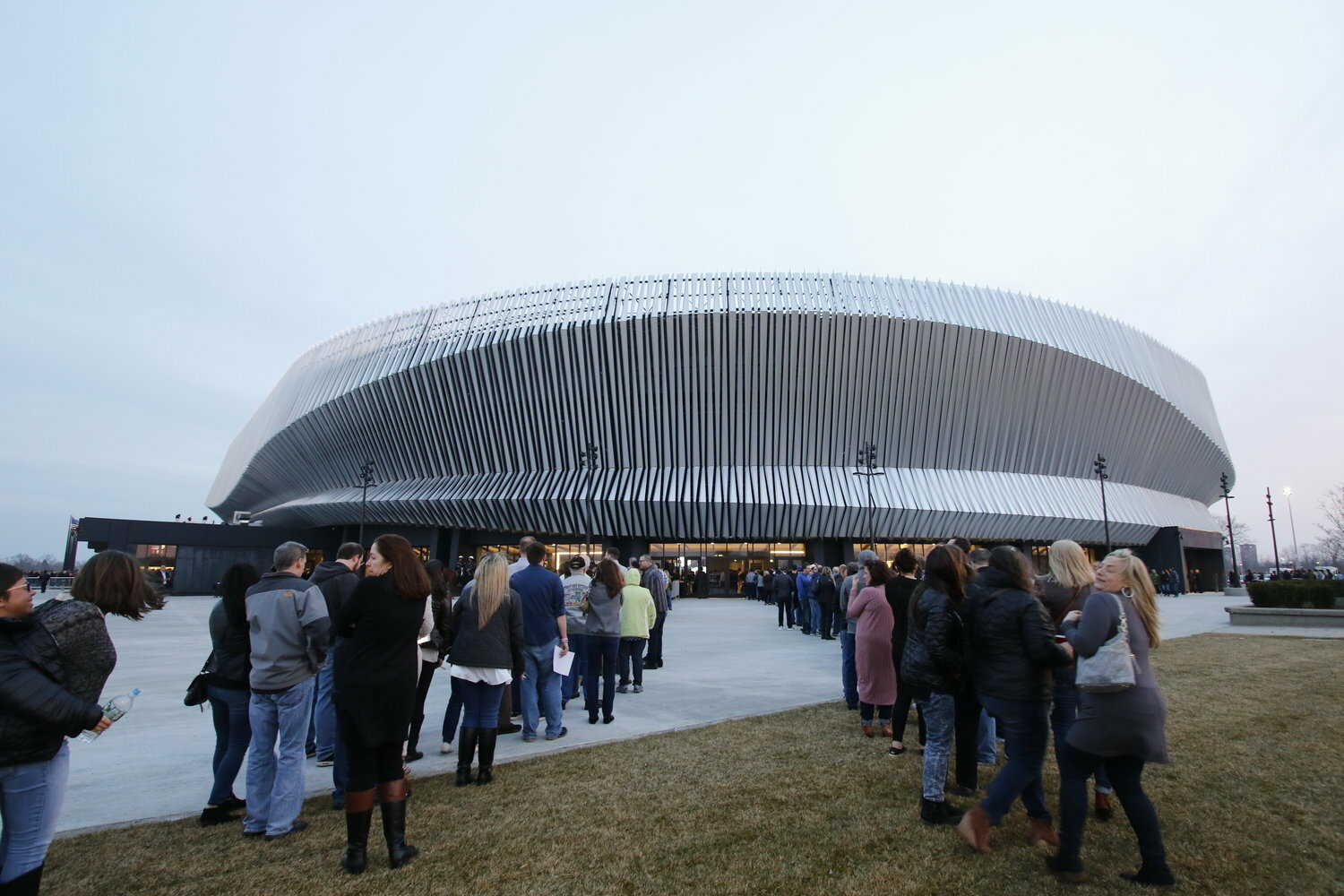Judge forces Sands to start over on Coliseum lease takeover
The redevelopment of the Nassau Coliseum in Uniondale just took a detour after a New York State Supreme Court judge ruled a lease the Las Vegas Sands signed with Nassau County wasn't valid, and both sides would have to start the process over again.
The county, according to Judge Sakira Kapoor, violated both the state's Open Meetings Law and the State Environmental Quality Review Act when the Nassau County Planning Commission voted in favor of the Sands lease in April, and its referral to the Nassau County Legislature for ratification in May.
In her ruling, Kapoor — herself a 2004 Hofstra University graduate — ordered both the planning commission and the legislature to conduct new public hearings, and to pay Hofstra University — which filed the suit in the first place — for some of its attorney fees in pursuing the matter.
Earlier this year, Sands said it would build a “multi-billion-dollar flagship hospitality, entertainment and casino project" on a portion of the site that houses the Nassau Veterans Memorial Coliseum in Uniondale.
Nassau County Executive Bruce Blakeman said at the time the 80 acres would be redeveloped with oudoor community spaces, high-end hotels, and what he described as a "world-class live performance venue honoring the legacy of live music" at the Coliseum.
The project would also include celebrity chef restaurants, convention space and ballrooms, a day spa, a swimming pool, and a health club.
It would create 12,000 construction jobs, and ultimately employ 5,000 people.
But the part of the project that drew most of the attention — despite taking up just 10 percent of the site — was a proposed casino, a staple in how Sands develops properties like this. The company had hoped to secure one of three casino licenses the state was offering, and felt the Coliseum site would be perfect to take on such a project.
And it was the casino that had neighboring Hofstra — and its president, Susan Poser — speaking out against the proposed $4 billion project. The university filed suit against the county in April.
"We are asking that the planning commission commit to a fair and transparent process," Hofstra spokeswoman Terry Coniglio said, at the time. "To this point, the planning commission's hearing did not comply with the law, and we have been forced to ask the court to ensure that the public receives the information it deserves, and a fair opportunity to be heard on this important matter."
In its suit — which did not include the Sands itself as a defendant — Hofstra claimed the planning commission scheduled three hearings on a proposed lease transfer of the Coliseum site to the Sands in March and April.
The meetings were filled to capacity, with the county setting up overflow rooms for those who wished to hear the proceedings, and have an opportunity to share their own comment. The school says the county failed to properly notice the meeting, to let people know the lease transfer was even up for discussion. They said the agendas for those meetings made no mention of the Sands, the Nassau Coliseum, the Nassau Hub, or the proposed development.
The county's attorneys countered that claim, saying Hofstra's general counsel was invited to all three meetings, and attended the first one.
In her ruling, Kapoor annulled the county planning commission's vote and resolutions from its April 27 and May 22 meetings, as well as the lease Sands president Zac Hudson signed with Blakeman on April 26. While the ruling doesn't kill the project, it will force all sides to go back to the beginning of the public meeting period discussion of the lease that took place last spring.
"In my opinion, the collective goal of our elected officials was to thrust this project upon the community without regard to our questions or concerns, and not stifling our voices so our voices would not be heard on this project," said Pearl Jacobs, president of the Nostrand Gardens Civic Association — and a member of the Say No to the Casino Project movement.
But Matthew Aracich — president of the Building and Construction Trades Council of Nassau and Suffolk Counties — told the Herald he felt Kapoor's ruling was "odd."
"They're looking for a technicality," Aracich said of Hofstra. "I think that there was plenty of time for the county to observe this particular project and take a deep dive into what it meant for the community, to the town, to the county, and ultimately what it means to the economy.
"I think this ruling is inappropriate, and it isn't going to stop anything. We'll go through the process again, and we'll win because we have more support now than we ever had."
Blakeman's office declined to comment on the ruling. However, Hofstra president Susan Poser issued a statement calling Kapoor's ruling "thoughtful" while recognizing "the public's right to participate in decision-making about the current redevelopment plan for the Nassau Hub."
"We look forward to contributing to the planning process and advocating for the use of the Hub in ways that will best contribute to our thriving community," Poser said, "while protecting against environmental and other harms."
Updated 10:07 p.m., to include statement from Susan Poser.

 50.0°,
Overcast
50.0°,
Overcast 




